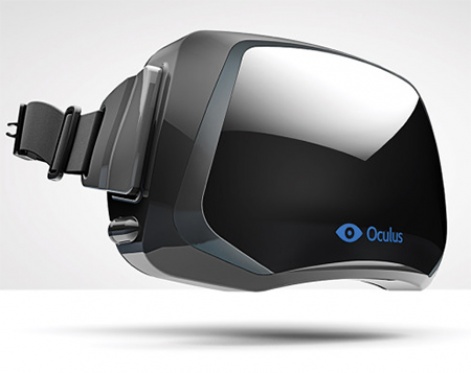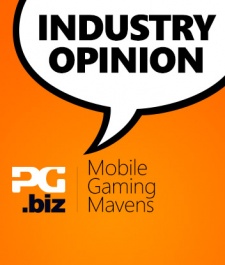Sony unveiled Project Morpheus at GDC, and wowed much of the press in the process. Days later, Sony's new found rival Oculus was acquired by Facebook for $2 billion.
So, in one of the most straightforward questions we've posed for some time, we asked our Mavens:
Did VR just become a mass market prospect, or are we still at the stage where the major players are sounding each other out?
And just what do you think Facebook will do with Oculus' tech?
The way I think about new technologies is: Do they offer more to a user than they require of a user when compared to current technologies? Or is the experience worth more than the overhead of using it compared to another technology?
To me, as VR stands, the comparison is any other screen. I've used an Oculus twice now and, whilst the immersion is pretty impressive, the inconvenience it present is large.
You have to set up, you lose all other vision, you can't share it, it's non-portable and you can't multitask with it. So my evaluation is, much like 3D TV, the potential for the technology is limited. At least as it stands.
However, I do think core gamers, especially PC gamers who are often very solitary in their usage, are exactly the demographic where the loss of convenience is worth the benefit of the increased experience. For consoles, VR could overcome the problem the Wii U attempted to solve: When one person wants to game and the other watch TV in the same space.
Right now, I just can't see VR as mass market proposition. But, I think it could become one as and when it asks less of a user.

A games programmer before joining Sony’s early PlayStation team in 1994, he then founded developer Pure Entertainment, which IPO’d and launched a free-to-play online gaming service way back in 1999.
He was also a director of pioneering motion gaming startup In2Games, which was sold to a US group in 2008.
Along the way, he’s been a corporate VP, troubleshooter, and non-exec to a variety of companies and investors in and around the games sector.
Harry was European CEO of Marvelous AQL, a Japanese developer and publisher of social, mobile and console games, known for console games like No More Heroes and Harvest Moon, but now highly successful in the free-to-play mobile and web space in Japan and Asia.
Harry is CEO of Magicave.
VR's definitely an impressive technology - after so many false starts when the tech just hasn't been up to scratch.
Personally I'm really happy about the Facebook acquisition - in order for VR to have the best chance of catching on with a large market, it's going to take a lot of money.
No sensible VC would be likely to fund even Oculus to the level that would be required to make it work for real. Combining Facebook's cash with the single biggest social community on the planet can only help to accelerate its acceptance.
From Facebook's perspective, the deal only seems to make sense if you can look 10 years (or some other infeasibly long time) into the future. Shared 3D experiences could become the new 'selfie'. If the half the world wants to stream their lives, and the other half wants to live vicariously, Facebook + VR seems like a great idea.
Quite what the tech involves to make that happen is anyone's guess - VR/AR displays that are Google Glass meets Rift? 360 degree Google Maps style cameras on everyone's heads? Kinect-style 3D cameras?
That makes it difficult to see exactly what tech/patents/expertise Oculus has that is immediately useful to Facebook. But, as a long term, slightly dystopian sci-fi future, it all sounds terribly exciting.
Personally, I found the biggest drawback of Rift to be just how vulnerable I felt when engaging with the device. Being cut off from the outside world is a little scary, and that could be a big hurdle in terms of making people comfortable, for example, engaging with VR in shared spaces.
That a lot of tech early adoption has been driven by the adult entertainment industry may spur some innovation there.
Surely the first to market with a 'flashing light on your VR display to warn you that your mum's approaching your bedroom' will clean up, for want of a better phrase, among the core adolescent market.
I completely agree. Oculus is groundbreaking. I'm not sure if the second dev kit will be the one that will really grab people's attention (probably the one after it), but by its nature it's for people who like to sit at a computer all day.
I think it will be an incredible, although probably addicting experience, and much more aligned for the hard core set which is the polar opposite of Facebook's demographic. I doubt there is much intersection between Farmville on Facebook and World of Warcraft.
It seems to me that Oculus wanted to cash out, plain and simple. I don't think that Palmer and John Carmack would be intimidated by project Morpheus, but maybe the investors stated getting cold feet and wanted out.
The idea that Facebook users will use the Oculus to meet up in virtual environments is silly. That will be niche at best, think second life compared to DOTA.
The idea that Facebook users will use the Oculus to meet up in virtual environments is silly. That will be niche at best.Dave Castelnuovo
Think about PlayStation Home. Oculus is not going to make your avatar look any cooler despite being in true 3D. It will still dance awkwardly and not quite look you in the eye. There is a ton of work to be done on this front before you can even think about mass market.
The one positive thing is that these billionaire silicon valley leaders are activists for the future in a certain way.
From Elon Musk to Google, these young entrepreneurs are investing in the future even though it might not make business sense in the next 5-10 years. They invest in it because they think it will make the world a better place.
Hopefully Oculus is this kind of investment in the future for Mark Zuckerberg because if he really thinks that he will have a virtual reality Facebook that has even minimal adoption, he will be in for a rude awakening and Oculus will be equivalent to that Ouya you bought but tossed aside after a couple weeks.
Facebook wants to compete with Apple, Google, Microsoft and some others. So it buys big. Mark wants to show his muscles in the valley as well and he did it with the last big acquisitions.

John is co-founder of PR and marketing company Big Ideas Machine. Also an all-round nice guy...
It's a huge deal - quite literally. A valuation of $2 billion for a company that so far has only managed to produce a dev kit and a lot of goodwill amongst the developer community.
To me, it feels like a strange fit with Facebook, as there is currently zero of the existing Facebook experience that lends itself to 3D, let alone VR.
If this is some kind of punt on what the future of the immersive Internet might be like then that's interesting, but so far off that Facebook could potentially build its own tech without spending so much money.
In the short term, what does it do with it? Where does it fit with Facebook's two big statements of intent - to be a mobile-first company, and to bring the Internet (and therefore Facebook ads) to the areas of the world that don't have it?
I have been told by people close to the deal that amongst all the suitors Oculus had, Facebook was the only one that was happy to let Oculus continue to operate as an individual entity - much as we've seen Instagram do. So it seems like for now, it'll continue as before, and see where things go.
Effectively, it's a punt by Zuckerberg that in the long term, he'll get value from the deal. And he can afford to make speculative $2 billion deal.
Do I think this will help VR become a commercial technology? No. I simply don't see any use for the tech outside of games or niche uses like simulation.
Currently, it's the opposite to everything Facebook claims to be about - it's solitary, non-portable, and doesn't suit bite-sized use, and you need a high-spec PC to run it.
Yes, all of these things can be changed by better technology, but even then, there would need to be significant social, psychological and cultural shifts to make it OK to wander around in VR glasses. I find Google Glass annoying enough as it is.

I'd like to know why Google didn't buy Oculus if it's such an amazing, game-changing technology. Surely for a company that's invested heavily in wearable tech, 3D mapping, robotics and now home automation, VR would fit quite nicely into that portfolio.
The fact that Google isn't the new owner suggests to me that either it doesn't see VR as the big new thing, or the Oculus technology isn't unique enough to be worth the price tag.
Facebook + Oculus = Your Second Life
Look gents, it's obvious that the next- gen Facebook is virtual.
Facebook is instilling the fear of god into Google. And, no my teutonic friends, it's not about Mark Zuckerberg flexing his muscle he is the muscle. (This persistent lack of perception is why i left that county twenty years ago.)
Mark is seeing Battlestar Galactica and Caprica's VR heritage as the future - and it will be the future one or two Xmasses away.
Full disclosure: Machineworks has been in the business of developing AI driven virtual agents for non - mobile applications and autonomous aircraft simulation since 2002.
Mobile games have a lot to learn - yes, our next gen games have Machine Learning AI - again. We put a glimpse of that in Duke Nukem Mobile 2D on Verizon. We received tons of emails saying "the monsters get tougher and tougher " - it was an option in the menu. Turn dynamic AI off/on...back in 2003.

Under Sandy’s leadership, YoYo Games has built an active GameMaker community 250,000-members strong while building partnerships with Amazon, Intel, Microsoft, and Valve that have helped it achieve 200 percent YOY growth in 2012.
Sandy’s previous experience includes a 17-year stint at Microsoft.
Couldn't agree more. No coincidence I think that Cory Ondrejka is head of engineering at Facebook. He was CTO and founder at Linden Labs.

























